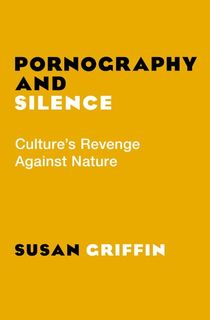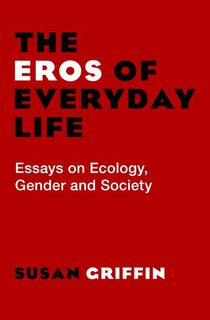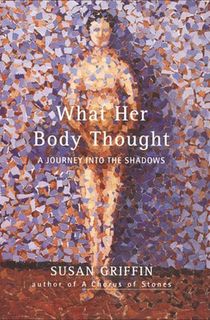Among her many titles—philosopher, playwright, poet, essayist, and more—Susan Griffin was best known for her work in the feminist sphere, where she routinely explored how external power structures linked to personal suffering.
Writing across mediums, including nonfiction, plays, and essays, Griffin addressed crucial subjects such as war, climate change, democracy, colonialism, and their intersections.
Her friend Nina Wise said that the cause of her passing was advanced Parkinson’s disease.
Born in 1943 in Los Angeles, California, during the Second World War and the Holocaust, these events played a pivotal role in her thinking. In addition, Griffin grew up along the Pacific Coast, an experience she attributed to her early understanding of ecology and later development of ecofeminism.
Griffin’s foundational work, Woman and Nature, is not only recognized as launching ecofeminism—the blend of environment and political ecology—in the United States, but her signature style of incorporating seemingly disparate topics.
Selling over 100,000 copies since its initial publication in 1978, Griffin firmly cemented herself as a pillar in feminist thought—now and forever more.
In 1981, Griffin followed up her bestseller with Pornography and Silence, where she argued that porn was founded in violent principles, and was ultimately anti-desire and a renunciation of the truly erotic.
In 1992, A Chorus of Stones—a powerful study of generational trauma—was published to great acclaim. A finalist for both the Pulitzer Prize and the National Book Critics Circle Award, and winner of the Northern California Book Award, the book synthesized many contemporary issues the world was, and continues to face.
The thinker will be remembered not only for her innumerable contributions to philosophical thought but also for her approach to addressing often taboo topics in ways that moved beyond the mere bounds of form and perception.
Griffin is survived by her daughter, Chloe Andrews, and two grandchildren.

Pornography and Silence
In this poignant critique, Susan Griffin spotlights the horrors of pornography. Rather than encouraging desire, the feminist argues that phonographic images actually stifle expression through the dehumanization of females as subjects.
Described by The New York Times Book Review as “a serious effort to apply feminist insights to sexual psychology,” Griffin explores the lives of six notable figures across time, focusing on sexual health and the erotic imagination.

A Chorus of Stones
Selected as a Pulitzer Prize and National Book Critics Circle Award finalist, A Chorus of Stones evaluates the catastrophic impacts of war on the personal level of the individual.
Stating that “each solitary story belongs to a larger story,” Griffin traces how the daily dynamics of parenthood, childhood, and more are profoundly reshaped in the aftermath of war.

Rape
In America, rape is the most frequently occurring violent crime—and yet, society does not treat it as such. The “scintillating and enthralling feminist thinker” critiques rape as an inevitable outcome of a culture that awards aggressive, violent sexual behavior in men (Booklist).
While considering the historical, political, and psychological lenses of the terrible act, hopes to redefine a culture in which rape is not socially intertwined or accepted.

The Eros of Everyday Life
Considering a wide range of issues, whether social, ecological, or gender-based, Susan Griffin, in this revealing anthology, considers the ways Western society reduces women and the environment.
Yet, in a blend of lyrical memoir and social commentary, and with a routinely feminist perspective, the thinker also celebrates the power of love and passion.

What Her Body Thought
In an illuminating mixture of memoir, history, and criticism, Susan Griffin considers our societal understanding of illness.
Beginning with an account of her own experiences with Chronic Fatigue and Immune Dysfunction Syndrome (CFIDS), she considers the shame of illness, and how we must all be authorized to tell our own stories, making our suffering visible, and therefore validated.
Featured image: Irene Young
